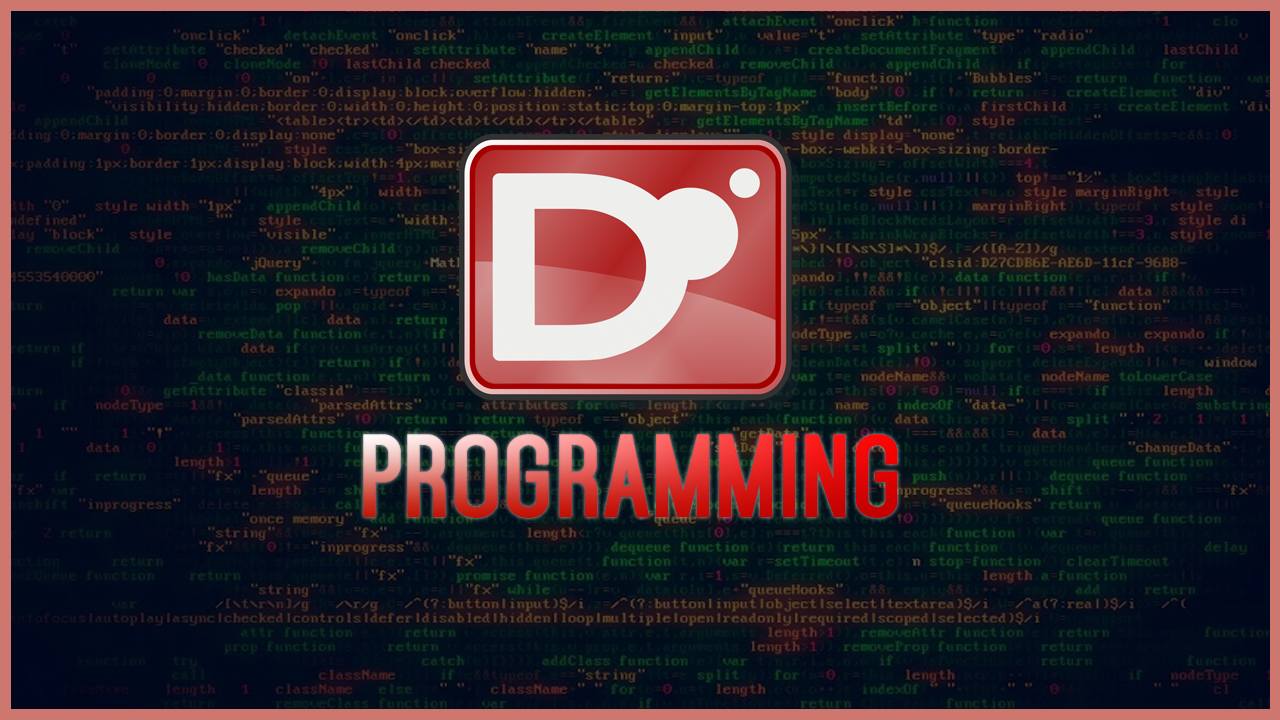mirror of
https://github.com/LCTT/TranslateProject.git
synced 2024-12-23 21:20:42 +08:00
151 lines
4.2 KiB
Markdown
151 lines
4.2 KiB
Markdown
[#]: collector: (lujun9972)
|
||
[#]: translator: (geekpi)
|
||
[#]: reviewer: (wxy)
|
||
[#]: publisher: (wxy)
|
||
[#]: url: (https://linux.cn/article-12489-1.html)
|
||
[#]: subject: (The feature that makes D my favorite programming language)
|
||
[#]: via: (https://opensource.com/article/20/7/d-programming)
|
||
[#]: author: (Lawrence Aberba https://opensource.com/users/aberba)
|
||
|
||
我最喜欢的 D 语言功能
|
||
======
|
||
|
||
> UFCS 能让你能够编写自然的可重用代码而不会牺牲便利性。
|
||
|
||

|
||
|
||
早在 2017 年,我就写过为什么 [D 语言是开发的绝佳选择][2]的文章。但是 D 语言中有一个出色的功能我没有充分的展开介绍:<ruby>[通用函数调用语法][3]<rt>Universal Function Call Syntax</rt></ruby>(UFCS)。UFCS 是 D 语言中的一种[语法糖][4],它可以在类型(字符串、数字、布尔值等)上链接任何常规函数,就像该类型的成员函数一样。
|
||
|
||
如果你尚未安装 D 语言,请[安装 D 语言编译器][5],以便你可以自己[运行 D 代码][6]。
|
||
|
||
看一下以下示例代码:
|
||
|
||
```
|
||
// file: ufcs_demo.d
|
||
|
||
module ufcs_demo;
|
||
|
||
import std.stdio : writeln;
|
||
|
||
int[] evenNumbers(int[] numbers)
|
||
{
|
||
import std.array : array;
|
||
import std.algorithm : filter;
|
||
|
||
return numbers.filter!(n => n % 2 == 0).array;
|
||
}
|
||
|
||
void main()
|
||
{
|
||
writeln(evenNumbers([1, 2, 3, 4]));
|
||
}
|
||
```
|
||
|
||
使用你喜欢的 D 语言编译器进行编译,查看这个简单示例应用做了什么:
|
||
|
||
```
|
||
$ dmd ufcs_demo.d
|
||
$ ./ufcs_demo
|
||
[2, 4]
|
||
```
|
||
|
||
但是,使用作为 D 语言的内置功能的 UFCS ,你还可以自然方式编写代码:
|
||
|
||
```
|
||
...
|
||
writeln([1, 2, 3, 4].evenNumbers());
|
||
...
|
||
```
|
||
|
||
或完全删除现在多余的括号,使 `evenNumbers` 看起来像是一个属性:
|
||
|
||
```
|
||
...
|
||
writeln([1, 2, 3, 4].evenNumbers); // prints 2, 4
|
||
...
|
||
```
|
||
|
||
因此,完整的代码现在变为:
|
||
|
||
```
|
||
// file: ufcs_demo.d
|
||
|
||
module ufcs_demo;
|
||
|
||
import std.stdio : writeln;
|
||
|
||
int[] evenNumbers(int[] numbers)
|
||
{
|
||
import std.array : array;
|
||
import std.algorithm : filter;
|
||
|
||
return numbers.filter!(n => n % 2 == 0).array;
|
||
}
|
||
|
||
void main()
|
||
{
|
||
writeln([1, 2, 3, 4].evenNumbers);
|
||
}
|
||
```
|
||
|
||
使用你最喜欢的 D 语言编译器进行编译,然后尝试一下。 如预期的那样,它产生相同的输出:
|
||
|
||
```
|
||
$ dmd ufcs_demo.d
|
||
$ ./ufcs_demo
|
||
[2, 4]
|
||
```
|
||
|
||
在编译过程中,编译器*自动地*将数组作为函数的第一个参数。这是一个常规模式,使得使用 D 语言成为一种乐趣,因此,它与你自然而然考虑代码的感觉非常相似。结果就是函数式编程。
|
||
|
||
你可能会猜出这打印的是什么:
|
||
|
||
```
|
||
//file: cool.d
|
||
import std.stdio : writeln;
|
||
import std.uni : asLowerCase, asCapitalized;
|
||
|
||
void main()
|
||
{
|
||
string mySentence = "D IS COOL";
|
||
writeln(mySentence.asLowerCase.asCapitalized);
|
||
}
|
||
```
|
||
|
||
确认一下:
|
||
|
||
|
||
```
|
||
$ dmd cool.d
|
||
$ ./cool
|
||
D is cool
|
||
```
|
||
|
||
结合[其他 D 语言的功能][7],UFCS 使你能够编写可重用的代码,并在不牺牲便利性的情况下自然地进行编写。
|
||
|
||
### 是时候尝试 D 语言了
|
||
|
||
就像我之前写的那样,D 语言是一种很棒的开发语言。从 [D 语言的下载页面][8]可以很容易地进行安装,因此请下载编译器,查看示例,并亲自体验 D 语言。
|
||
|
||
--------------------------------------------------------------------------------
|
||
|
||
via: https://opensource.com/article/20/7/d-programming
|
||
|
||
作者:[Lawrence Aberba][a]
|
||
选题:[lujun9972][b]
|
||
译者:[geekpi](https://github.com/geekpi)
|
||
校对:[wxy](https://github.com/wxy)
|
||
|
||
本文由 [LCTT](https://github.com/LCTT/TranslateProject) 原创编译,[Linux中国](https://linux.cn/) 荣誉推出
|
||
|
||
[a]: https://opensource.com/users/aberba
|
||
[b]: https://github.com/lujun9972
|
||
[1]: https://opensource.com/sites/default/files/styles/image-full-size/public/lead-images/code_computer_laptop_hack_work.png?itok=aSpcWkcl (Coding on a computer)
|
||
[2]: https://opensource.com/article/17/5/d-open-source-software-development
|
||
[3]: http://ddili.org/ders/d.en/ufcs.html
|
||
[4]: https://en.wikipedia.org/wiki/Syntactic_sugar
|
||
[5]: https://tour.dlang.org/tour/en/welcome/install-d-locally
|
||
[6]: https://tour.dlang.org/tour/en/welcome/run-d-program-locally
|
||
[7]: https://dlang.org/comparison.html
|
||
[8]: https://dlang.org/download.html
|